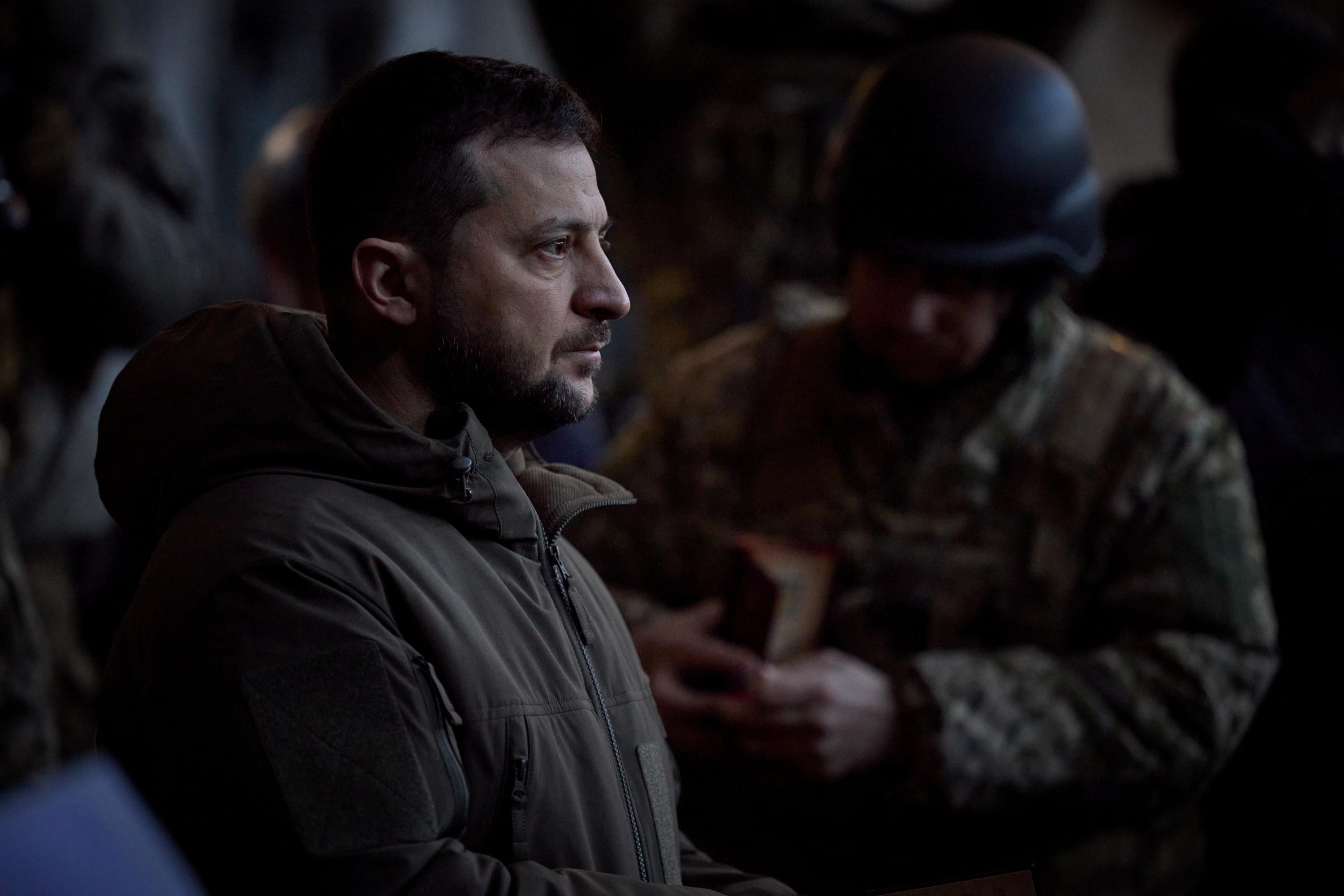Tuesday marked 300 days since the start of Russia’s attempted obliteration of Ukraine. For almost a year now, war has tormented the Ukrainian people, though their resolve remains unshaken.
The spectacular failings of Russia’s military endeavors over the past 11 months have been well documented. Still, the winter months will bring unprecedented challenges for Ukraine as temperatures and morale plunge.
In a sign that Kyiv is doubling down on efforts to secure more support ahead of a grueling winter, Ukrainian President Volodymyr Zelensky will reportedly arrive on Wednesday in Washington, DC – his first time leaving Ukraine since the war began. The Ukrainian president will meet President Joe Biden at the White House and address a joint session of Congress, where he'll likely thank them for the US' ongoing support and request that the funds keep on coming.
Here are three of the biggest challenges facing Ukraine in the months ahead.
Energy onslaught. The Kremlin’s strategy of targeting Ukraine’s energy infrastructure has proven painfully effective.
Recent Russian missile strikes have left millions of Ukrainians without electricity, while around half of Ukraine's energy infrastructure has been taken offline in recent months. That this presents a major catastrophe for a population grappling with frigid temperatures and an uptick in war injuries is no surprise – a message reiterated by the World Health Organization, which recently issued a warning that “cold weather can kill.”
Here’s a sign of how bad things are – and how much worse they could get: The head of Ukraine’s largest private energy company has urged Ukrainians to leave the country for up to three months if possible to help the state preserve energy.
Moreover, while Ukrainian authorities have so far done a solid job repairing damaged infrastructure, that’s becoming more difficult due to deteriorating weather conditions. After a recent Russian drone attack on Odessa's electrical grid left 1.5 million Ukrainians without power, regional officials said that repairs could take up to three months.
Military escalation. Are Russian forces preparing for a fresh attack on Ukraine? It’s hard to know, but satellite imagery shows a mild buildup of Russian troops and equipment in southwest Belarus near the Polish border – and reports suggest that these troops will soon begin conducting tactical exercises.
Some analysts have dismissed claims that Belarus’ strongman President Alexander Lukashenko will send his own soldiers into battle to help his longtime pal Vladimir Putin. But Kyiv, for its part, has expressed fears that Russia could join forces with Belarusian battalions to open a new northern front.
Though Ukraine’s military has shown exceptional skill and resilience, Zelensky’s army is still the ultimate underdog. If Putin has learned lessons from his botched autumn mobilization effort – and if the Kremlin is indeed planning a new ground offensive – then Ukrainians are right to be worried.
Will the funds keep flowing? Concern abounds in Kyiv about whether Washington will continue sending military aid to Ukraine at current levels come January when the new US Congress is sworn in. And Ukraine is right to be worried about Uncle Sam cutting back: During the first 11 months of this year, the US sent more than $22.9 billion in security assistance to Ukraine. For context, other major economies, like the UK and Germany, sent $4.1 billion and $2.4 billion, respectively. So far, the US is showing no signs of backing down. The Senate on Tuesday unveiled a $45 billion aid package to Ukraine, exceeding Biden’s original ask of $37 billion. (It's expected to pass before the Friday midnight deadline.) During Zelensky’s visit, Biden also reportedly plans to announce a new $1.85 billion security package for Ukraine.
So where's the concern coming from? A handful of Republicans have called for the US to slash support for Ukraine and while this remains the marginal view within the GOP, there are some indications that the message is resonating. Kevin McCarthy, who leads House Republicans – and will have to cut deals with his unruly caucus members to become House Speaker next month – has said that the US should no longer be signing “blank checks” to Ukraine.
This seems to reflect the views of a growing number of GOP voters – 48% of whom recently said that the US is doing too much to help Ukraine, according to a Wall Street Journal poll. That’s a staggering change from a March poll, when just … 6% of GOP voters agreed.
To be sure, a majority of Americans support current aid levels to Ukraine, and there has been no indication from House Republicans – who will soon control the purse strings of the government – that they plan to cut aid to Kyiv. But if inflation remains high, lawmakers could face increasing pressure from voters to direct those tens of billions of dollars elsewhere.
And it’s clear that Zelensky is concerned about this as well. When asked about the war’s future in a recent interview with US comedy legend David Letterman, Zelensky said: “The US is the main supporter of Ukraine … when the war ends largely depends on that support.” Without it, Zelensky added, this battle “would be very difficult for us.”
